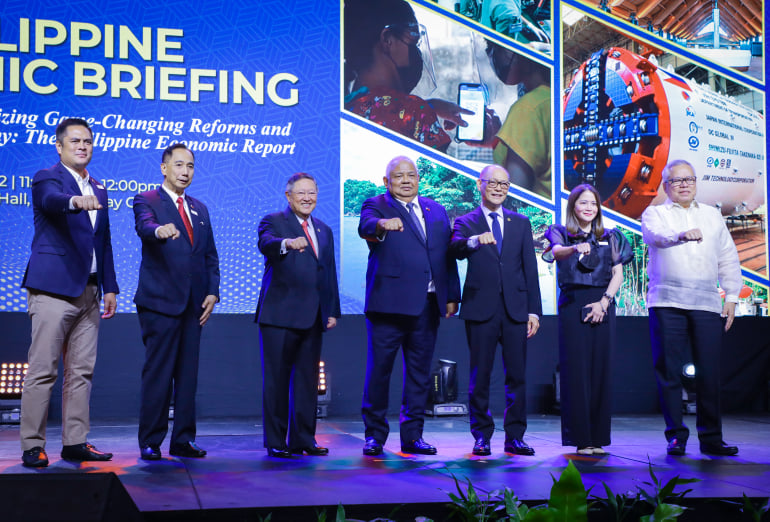
Finance Secretary Carlos Dominguez highlighted the positive impact of the gamechanging Rice Tariffication Law (RTL) on the agriculture sector during the Philippine Economic Briefing held on April 5, 2022 at the Philippine International Convention Center.
“The RTL was finally achieved after more than 30 years of failed attempts under previous administrations. The law opened up the Philippine rice market and in turn, lowered the price of the country’s staple food for more than 100 million Filipinos,” Secretary Dominguez said.
The finance chief and Economic Development Cluster (EDC) head added that RTL is a landmark law that reforms the country’s previous dysfunctional rice policy.
“Rice is no longer the main contributor to our overall inflation rate. The RTL ensures that farmers benefit directly by providing at least P10 billion each year for mechanization, high-quality seeds, access to credit, and training,” he said.
The price of regular milled rice declined from P42.3/kg in 2018 to P38.6/kg in 2019, while that of well-milled rice fell from P44.6/kg in 2018 to P42.6/kg in 2019. Consumers also now have a wider variety of rice choices.
Through the RTL, the government also earned a total of P46.6 billion in rice import tariffs in the first three years of its implementation.
“These revenues support the reform and modernization of our agriculture sector. This is a complete reversal of the P11-billion annual average tax subsidies the government provided to NFA every year from 2005 to 2018. The RTL is just one of the progressive efforts undertaken by the Department of Agriculture (DA) led by Secretary William Dar, who’s here, to build productivity and enhance the resiliency of our agriculture sector,” Secretary Dominguez mentioned.
With the theme, “Six Years of Institutionalizing Game-Changing Reforms and Shaping the New Economy: The Philippine Economic Report,” the briefing highlighted the country’s gamechangers including the Philippine Identification System, Tax Reform for Acceleration and Inclusion, RTL, Ease of Doing Business, and the “Build, Build, Build” Program, among others.
In line with the Build, Build, Build, Secretary Dar said that it has been a big help to the country’s agriculture and fisheries sector.
“The numerous projects of the infrastructure agencies, including farm-to-market roads (FMRs) have complemented the programs of the DA in boosting food production in the country,” he said.
As of December 2021, 484 seaports and 2,523 kilometers of FMRs were completed.
Secretary Dar also stressed that despite the pandemic, the country did not experience food shortage.
“We were able to achieve 92% rice self-sufficiency in the past year. We posted a record yield of 19.96 million metric tons of palay in 2021,” the agri chief stated.
According to Secretary Dominguez, many reform measures that languished for decades on the shelves of Congress were finally enacted into law and despite the pandemic, the hard-won reforms bolstered the country’s ability to recover and rebuild.
“Under President Duterte’s term, the Philippines made the decisive shift from an inward-looking economy to one ready to compete with the rest of the world,” he said. ### (Gumamela Celes Bejarin, DA-AFID)













